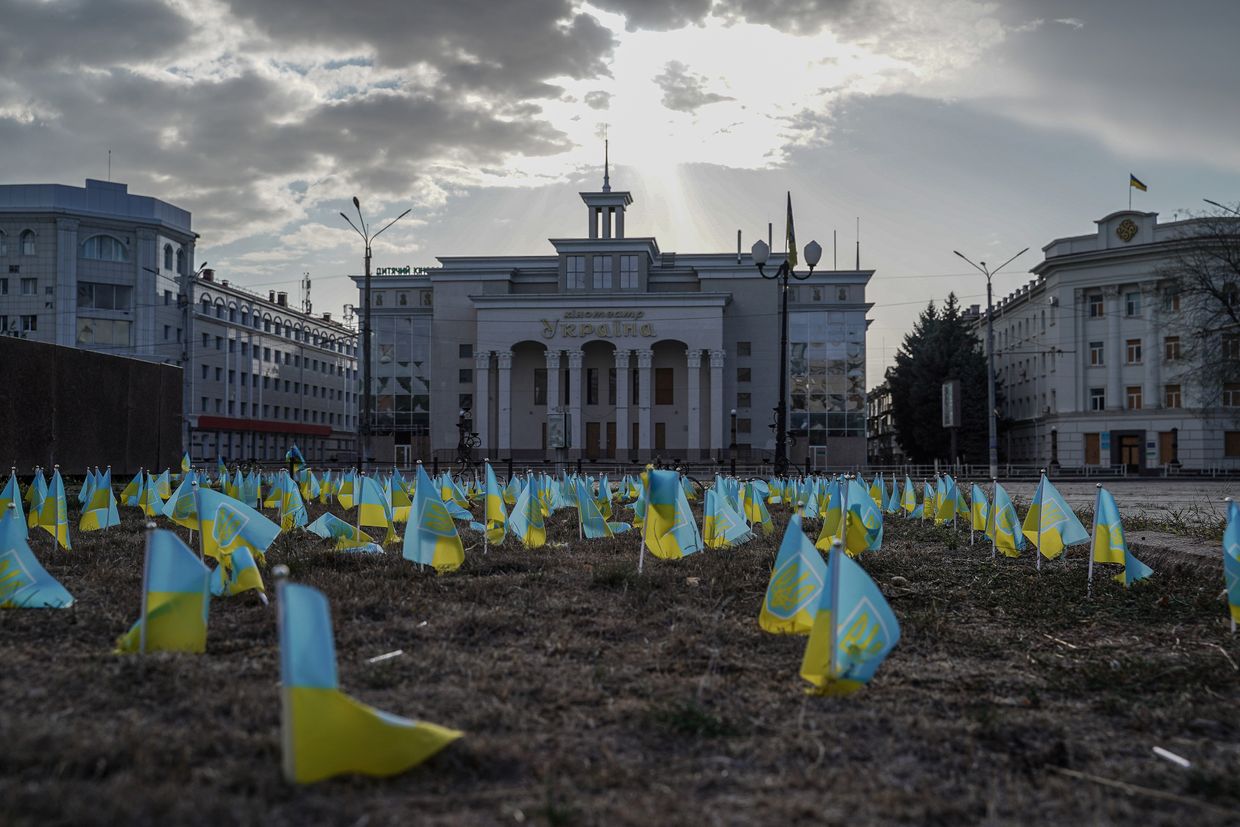Witkoff spreads Kremlin narratives, has no mandate to discuss Ukrainian territory, Zelensky says

President Volodymyr Zelensky has accused U.S. Special Envoy Steve Witkoff of spreading Russian propaganda and overstepping his authority by discussing Ukrainian territory in back-channel peace talks with Moscow.
Speaking during a press briefing in Kyiv on April 17, Zelensky reiterated that Ukraine would not negotiate away its territory and dismissed Witkoff’s recent statements following a meeting with Russian President Vladimir Putin.
“I believe Mr. Witkoff has adopted the strategy of the Russian side,” Zelensky said. “Consciously or not, he is spreading Russian narratives. Either way, it does not help. And I do not see any mandate for him to speak about Ukrainian territories. These lands belong to our people, to our nation, and to the future generations of Ukrainians.”
On April 14, Witkoff told Fox News that his April 11 meeting with Putin in St. Petersburg was “compelling” and suggested that a potential peace deal could center on the status of five territories. While he did not name them explicitly, he is believed to be referring to Crimea, illegally annexed by Russia in 2014, along with the partially occupied regions of Donetsk, Luhansk, Zaporizhzhia, and Kherson.
“As I said, we are discussing an unconditional ceasefire – and until that happens, we are not discussing territories,” Zelensky said. “You know my position and our red lines: we will not recognize any of our temporarily occupied territories as Russian.”
The Ukrainian leader warned that Russia remains uninterested in peace and continues preparing for new military offensives.
“Russia wants to gain as many square kilometers as possible to strengthen its position in final negotiations,” he said. “We will see this in waves of attacks – in offensive assaults, in missile strikes. They are heating up the situation.”
Zelensky urged U.S. leadership to apply more pressure on Moscow, saying that “(U.S. President Donald) Trump needs to ramp up sanctions. “The tougher the sanctions, the closer we are to a ceasefire.”
Witkoff, officially the U.S. envoy to the Middle East, was tasked by Trump to negotiate a peace in Ukraine. Since then, he has drawn criticism from both U.S. and Ukrainian officials for promoting Kremlin-aligned proposals, including recognizing Russian control over Ukrainian land as a path to ending the war.
The Wall Street Journal reported that senior officials within the Trump administration, including Secretary of State Marco Rubio and Special Envoy for Ukraine Keith Kellogg, have urged Trump to reject such concessions.
On April 11, Reuters reported that Witkoff told the U.S. president that granting Russia de facto control of the four partially occupied regions would be the fastest way to secure a ceasefire, a claim that mirrors Russia’s long-standing demands.
Meanwhile, Russia has continued to violate the partial ceasefire agreed on March 25, which was intended to cover energy infrastructure and Black Sea targets. A full 30-day ceasefire, proposed by Trump and backed by Kyiv, remains rejected by Moscow.












